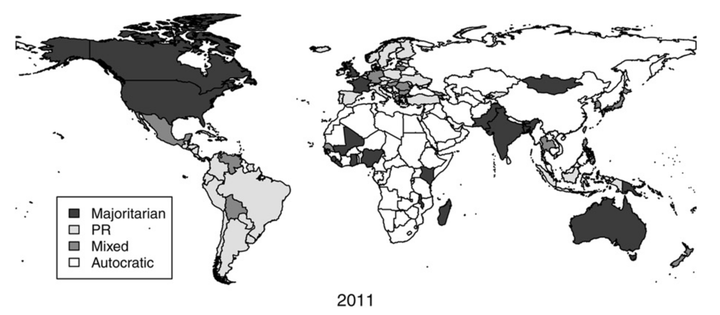Joint work with Matt Golder (Pennsylvania State University).
Abstract
Elections are a defining feature of contemporary democracies. The precise rules governing elections can have an important impact on a diverse set of outcomes related to things like identity formation, political representation and accountability, economic policy, public goods provision, coalition formation, levels of corruption, party systems, and various forms of voter behavior. This resource constitutes the latest version of Bormann and Golder’s (2022) widely used Democratic Electoral Systems (DES) dataset, which provides detailed information on the electoral rules used in all democratic elections around the world as well as the size of party systems.
Version 5.0 of the DES dataset covers democratic elections from 1919 (or independence) through 2020, and provides information on 1,826 lower-house legislative elections and 648 first-round presidential elections. The period 1919 to 1945 was added by Bormann and Kaftan (2024). The DES dataset includes information on all elections that are considered democratic by at least one of five different measures of regime type: Democracy and Dictatorship (DD), Freedom House (FH), Polity5, Boix-Miller-Rosato (BMR), and Varieties of Democracy (V-Dem).
All versions of the dataset are available on Matt’s homepage. You can find the shiny app to explore the data in greater detail here.
